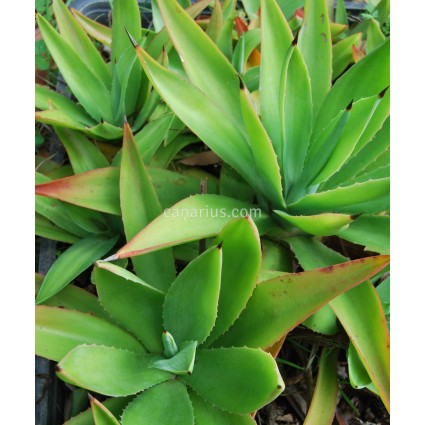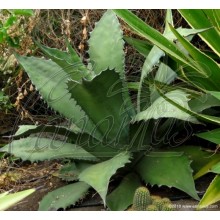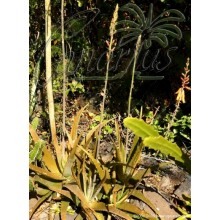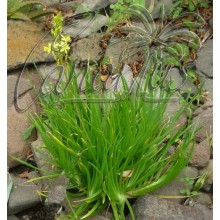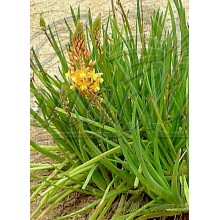Agave demeesteriana 'Espinas'
This is an uncommon clone of Agave demeesteriana, which is usually represented by clones with spineless leaf margins. Leaves are elegantly arching, dark-green in colour, with a light glaucous wax, marginal spines are soft and almost unharmful. It is a small sized species which will hardly exceed 60 cm in diameter.
Nuevo
This is an uncommon clone of Agave demeesteriana, which is usually represented by clones with spineless leaf margins. Leaves are elegantly arching, dark-green in colour, with a light glaucous wax, marginal spines are soft and almost unharmful. It is a small sized species which will hardly exceed 60 cm in diameter. It takes any drought, and short light frosts, but it enjoys water and heat all year long, so it grows well also in wet tropical areas. Agave demeesteriana, also spelled A. de-mesteeriana is a "mistery plant" of obscure origin, with a name of obscure taxonomy. Nobody has ever tracked its habitat: the plants is sexually sterile and is only propagated by offsets, which are profusely produced on the dying inflorescence. This asexual reproduction possibly indicates a domestic origin. It became popular in the gardens of La Habana but specialists pointed out a possible origin in Southern Mexico or Colombia. Regarding taxonomy, the name is weakly documented. It has been called for years Agave miradorensis or A.desmettiana (Also spelled A. desmetiana). There are a few differente clones in cultivation, chiefly : a plain green form with smooth margines, a plain green with spiny margins, and two variegated clones with spineless margins, the 'Joe Hoak' clone with creamy white variegation all over the leaf and the good-old albomarginated form.
| Cultivada | Protegido |
| Origen de la especie | América |
| Forma presentación | A raíz desnuda |
| Tamaño Máx. | 70cm-90cm |
| Familia Botánica | Asparagaceae |
| Luz | Sol |
| Temperatura mínima invierno | 5 ºC a 15 ºC |
| Tipo de planta | Herbácea |
| Cuidados | Maceta |
| Forma | Crasas o suculentas |















